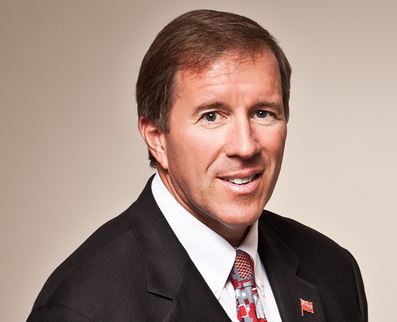Bermuda Premier Michael Dunkley, who says the British Overseas Territory is an international leader in the registration of companies and has operated a central registry of firms since the 1940s, was “surprised and disappointed” that Labour leader Ed Miliband included his country in a **tax avoidance blacklist threat.
** Tax avoidance refers to legal methods people and businesses use to minimize their tax bill – unlike tax evasion, which is illegal.
As part of his tax-avoidance clampdown, Mr. Miliband said he wants to blacklist British territories if they fail to compile public registers of offshore firms. He has written a warning letter to the leaders of Montserrat, Gibraltar, Turks and Caicos Islands, Cayman Islands, British Virgin Islands, Antigua and Bermuda.
Mr. Miliband also wrote to the Isle of Man, Guernsey and Jersey, which are Crown Dependencies.
If Labour wins May’s general elections, those territories and dependencies would be given a six-month ultimatum to compile a register. Those that failed to comply would be placed on an OECD (Organisation of Economic Co-operation and Development) blacklist of tax havens. Nations and territories on that list would face severe sanctions.

Bermuda Premier Michael Dunkley insinuated that Ed Miliband simply sent a blanket letter to everybody with the same threat without checking each territory’s procedures.
Mr Dunkley responded:
“The government of Bermuda remains open to continuing dialogue with the UK government, the UK opposition, and all other interested parties, in sharing best practice across borders in areas of corporate transparency, and the fight against fraud and crime.”
“We would also remind Mr Miliband of Bermuda’s strategic economic contribution to the UK, which includes direct and indirect employment in the UK of 100,000 people, as well as our role as a global hub for the reinsurance and insurance industries, providing the critical underwriting required for damage arising from natural disasters and terrorist events.”
Mr. Miliband believes companies and individuals are diverting funds into offshore companies based in the countries he has written warning letters to. He adds that they could help combat tax avoidance by helping UK tax authorities find out who was avoiding tax in this way.
David Gauke, Conservative Treasury Minister, pointed out that other OECD countries, including Germany, France and the United States, do not have a public central register, consequently Mr. Miliband’s plan is unworkable.
The OECD agreed to set up a blacklist as part of their coordinated attempt to combat tax avoidance and tax evasion. (Tax avoidance is legal, tax evasion is illegal).
Former Labour donors alarmed at Miliband’s anti-business stance
Lord Haskins and Lord Paul of Marylebone, both former-Labour donors, expressed alarm at Mr. Miliband’s attack on commercial interests, describing his tactic as “not sensible” and “unnecessary”. They worry that if the Labour party won the general election on this campaign ticket the consequences for London’s stock market, jobs and the overall economy would be negative.
In an interview with The Telegraph, Lord Haskins, who used to be chairman of Northern Foods, said:
“If you go into a situation before the election and there is such bad will between business and the Labour Party, and the Labour Party wins the election, then you get all sorts of upheavals in the stock market shortly afterwards, which is very unsettling. Therefore it is not sensible for the Labour Party to go out after the business community.”
Lord Paul, who sits as an independent but is still a Labour supporter, said to The Telegraph:
“All I know is, irrespective of who forms the government, they cannot afford to see business being destroyed … if they (Labour) get into power they have to make sure business survives otherwise it doesn’t help their own people because they need jobs also.”

